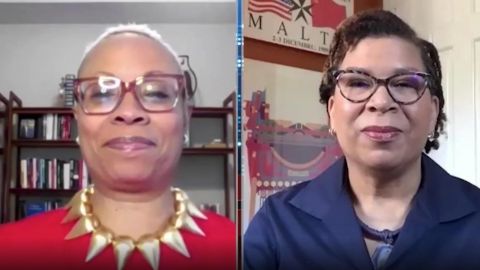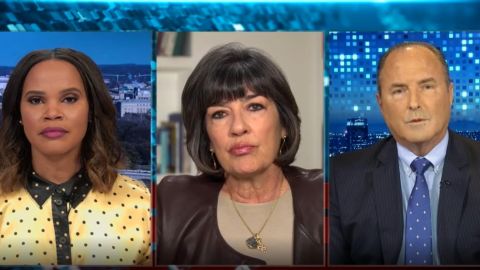Read Transcript EXPAND
LAURA COATES, CNN SENIOR LEGAL ANALYST: They’ve gone very far. There’s way, two key components here. One is whether the officer use an excessive amount of deadly force that was not proportional or necessary in the light of the person no longer resisting, if at all. The second part, though, is about the substantial causal factor of death. The combination of these two points is what the prosecution has to prove that he was not entitled to use the deadly force he did. And when he used that deadly force, applying that body weight to the neck of George Floyd and withholding aid this person, although they were in custody, and had a duty of care that had to be performed, that this caused the death of George Floyd. It’s the constant theme for the two murder charges and the manslaughter charge.
CHRISTIANE AMANPOUR: So, I want to get to what this incredibly dramatic medical witness said today, and that is Dr. Tobin. He basically said that, as we know Chauvin kept his knee on the neck of George Floyd even after as he said, not an ounce of oxygen was left in his body. And another key part of Tobin’s testimony is as follows. Let’s play this exchange.
(BEGIN VIDEO CLIP)
UNIDENTIFIED MALE: Do you have an opinion to a reasonable degree of medical certainty as to whether a person who had none of those pre-existing conditions, a healthy person, would have died under the same circumstances as Mr. Floyd?
TOBIN: Yes. A healthy person subjected to what Mr. Floyd was subjected to would have died as a result of what he was subjected to.
(END VIDEO CLIP)
AMANPOUR: Now, I want to ask you, Chief De Lucca from a police perspective, because the defense is constantly trying to say that he had other underlying conditions and that he might have died or did die or not because just of the need. What has been the significance of that exchange and today is dramatic testimony for you, from your perspective?
DONALD DE LUCCA, FORMER PRESIDENT, INTL. ASSOCIATION OF CHIEFS OF POLICE: Well, you know, I’ve been in law enforcement for over three decades. And as I’ve watched this today, the doctor clearly explained in great detail what transpired that the force use was definitely not necessary. It was excessive. And when you hear him say, at this point, he takes his last breath. I mean, and you’ve heard the Chuck Ramsay’s and others talk about this. He was in control. When he says, I can’t breathe, they could have turned him to his side. But I think this is going to do is open the eyes to law enforcement across the country. We have 800,000 officers, 18,000 police departments that are watching this, this story unfold in front of them. It basically says you’re going to be accountable for what you do. And this has been broken down into the greatest detail I’ve ever seen.
About This Episode EXPAND
Donald De Lucca and Laura Coates discuss the ongoing trial of Derek Chauvin. Regina King and Kemp Powers discuss their new movie ““One Night in Miami…” Tax law professor Dorothy A. Brown talks about the racism present in tax policy.
LEARN MORE


